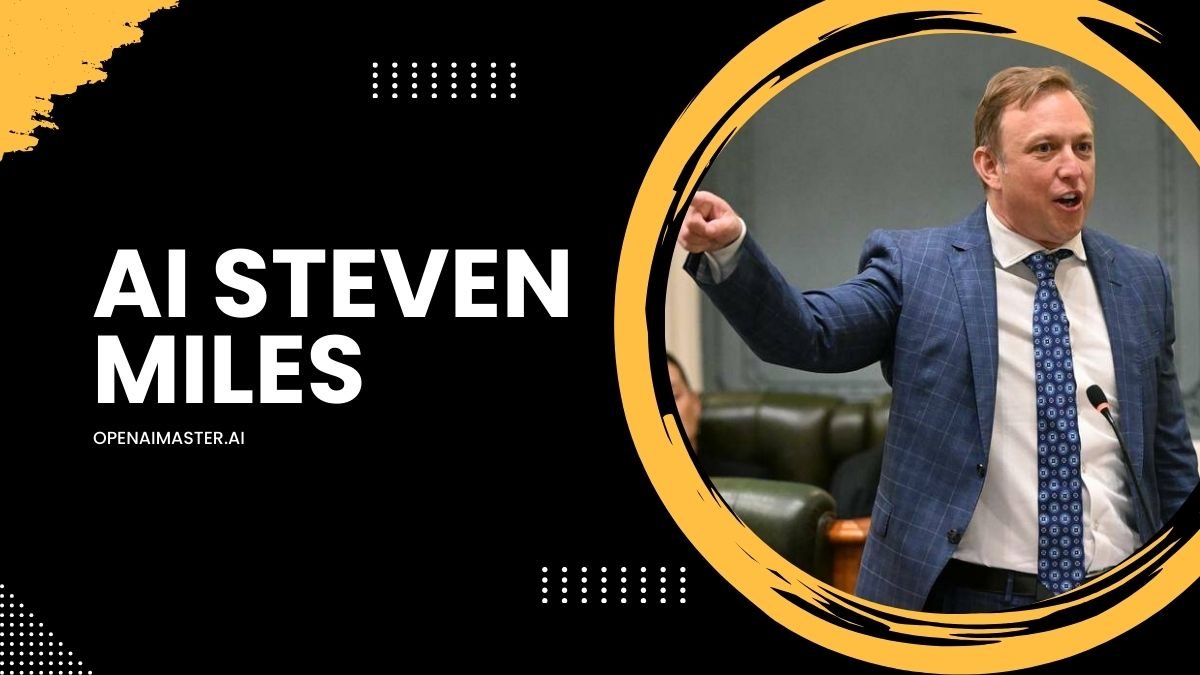In a controversial move that has ignited a fierce debate about the future of political campaigning, the Liberal National Party (LNP) of Queensland recently posted an AI-generated video of Premier Steven Miles on the popular social media platform TikTok. The incident has raised serious concerns about the use of artificial intelligence in political advertising and its potential impact on democratic processes.
The video in question depicts a computer-generated version of Premier Miles dancing to a popular song, with overlaid text criticizing his administration’s handling of rising living costs. This type of manipulated media, known as a “deepfake,” uses advanced AI technology to create highly realistic but entirely fabricated audio and video content.
Premier Miles was quick to condemn the video, describing it as a “dangerous turning point for democracy.” He expressed particular concern about the blurring line between reality and fiction in political discourse. “While people have become accustomed to the possibility of doctored photos, videos have traditionally been seen as more trustworthy,” Miles stated in a press conference. “This new technology challenges that perception and could lead to widespread misinformation.”
The Premier’s worries stem from the potential for deepfake technology to be used maliciously. While the LNP’s video was intended as political satire, Miles argued that similar techniques could be employed to create more harmful and deceptive content. This, he fears, could further erode public trust in political figures and institutions.
One of the key issues highlighted by Miles was the labeling of the video as AI-generated. He contended that the fine print indicating the artificial nature of the content was not prominent enough, making it easy for viewers to overlook. This raises questions about transparency and the responsibility of political parties to clearly communicate when they are using manipulated media.
In response to the criticism, the LNP defended their use of the AI-generated video. A party spokesperson stated that the content was clearly labeled as artificial and was intended to draw attention to important issues affecting Queensland residents, such as increasing rents and power prices under the current administration.
The LNP also pointed out that the use of AI-generated content is becoming increasingly common on platforms like TikTok, where many users employ filters and effects that alter their appearance or surroundings. They further noted that other political parties, including the federal Labor Party, have used similar techniques to mock their opponents.
This incident has sparked a broader conversation about the need for updated regulations governing political advertising in the digital age. Experts in media law and political science are calling for new legislation to prevent the spread of misinformation and ensure transparency in election campaigns.
Dr. Emma Thompson, a media ethics professor at the University of Queensland, explained the complexity of the issue: “While political satire and parody have long been protected forms of speech, the advent of deepfake technology presents new challenges. It’s becoming increasingly difficult for the average viewer to distinguish between genuine and manipulated content, which could have serious implications for informed democratic participation.”
Some politicians and advocacy groups are suggesting that Australia could look to international examples for guidance. South Korea, for instance, has taken a strong stance on this issue by banning election-related deepfake videos in the lead-up to elections.
However, crafting effective legislation in this area is not without its challenges. Balancing the right to free speech and political expression with the need to protect the public from deception is a delicate task. Any new laws would need to be carefully worded to avoid unintended consequences or potential abuse.
The controversy has also highlighted the need for increased digital literacy among the general public. Education experts are calling for more comprehensive programs to help citizens critically evaluate the media they consume, especially in the context of political campaigns.
As the debate continues, it’s clear that the use of AI in political advertising is an issue that will require careful consideration from lawmakers, political parties, and the public alike. The incident involving Premier Miles may well be remembered as a turning point in how societies grapple with the implications of advanced technology in the political sphere.
While AI and deepfake technology offer new creative possibilities for communication and entertainment, their potential for misuse in the political arena cannot be ignored. As Queensland and the rest of Australia grapple with these challenges, the outcome of this debate could have far-reaching consequences for the future of political campaigning and the integrity of democratic processes.
As this story continues to develop, citizens are encouraged to stay informed and engaged in the conversation about the role of technology in politics. The decisions made in the coming months and years could shape the landscape of political discourse for generations to come.

